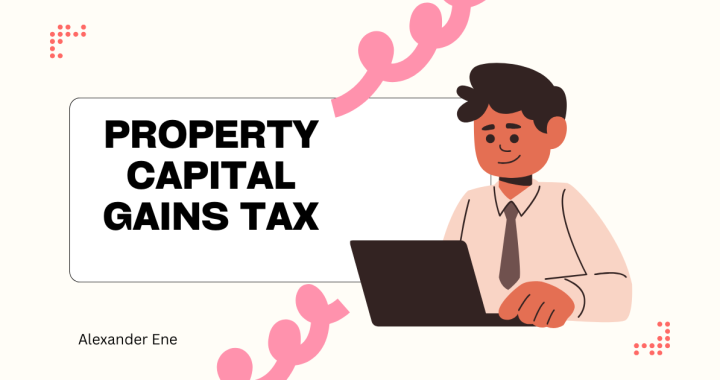Are you looking for a guide with respect to property accountant in London? Look no further! This article provides a concise overview of the role and importance of a property accountant in the bustling city of London. From managing financial records and budgets to analysing property investments, a property accountant plays a vital role in ensuring the smooth financial operations of real estate businesses. Discover the key responsibilities and skills required for this position, and gain insights into why hiring a property accountant is crucial for successful property management in London.
Overview
Are you considering a career as a property accountant in London? This comprehensive article will provide you with a detailed understanding of the responsibilities, qualifications, tools, work environment, salary, career outlook, challenges, networking opportunities, and best practices associated with this profession. Whether you are just starting your journey or looking to advance your career, this article will serve as a valuable resource to guide you in the right direction.
Responsibilities of a Property Accountant in London
Maintaining Financial Records
As a property accountant in London, one of your primary responsibilities is to maintain accurate and up-to-date financial records for properties. This includes recording transactions, verifying the accuracy of financial information, and reconciling discrepancies. By keeping a meticulous account of all financial activities, you ensure transparency and provide a solid foundation for financial analysis and decision-making.
Preparing Financial Statements
Another crucial duty of a property accountant is to prepare financial statements. These statements, such as balance sheets, income statements, and cash flow statements, provide valuable insights into the financial health of the properties. By carefully analysing these statements, property owners, investors, and managers can make informed decisions regarding leasing, acquisitions, and financial strategies.
Managing Accounts Receivable and Payable
Managing accounts receivable and payable is an integral part of the property accounting process. This involves invoicing tenants, tracking rental payments, and ensuring timely collection. On the other hand, managing accounts payable entails processing invoices from vendors and service providers and ensuring timely payment. By effectively managing these processes, you contribute to the financial stability of the properties and maintain positive relationships with stakeholders.
Budgeting and Forecasting
As a property accountant, you will play a vital role in budgeting and forecasting for properties. This involves analysing historical financial data, assessing market trends, and making projections for future revenues and expenses. By developing accurate budgets and forecasts, you assist property owners and managers in making strategic decisions that maximize profitability and minimize risk.
Tax Compliance
Tax compliance is a critical aspect of property accounting. You will be responsible for ensuring that all tax obligations, such as property taxes and income taxes, are met in a timely and accurate manner. This requires staying up-to-date with tax laws and regulations, maintaining proper documentation, and filing tax returns. By proactively managing tax compliance, you help prevent costly penalties and ensure legal compliance for the properties.
Performing Financial Analysis
Financial analysis is an essential skill for property accountants. By analysing financial data, you uncover trends, identify areas for improvement, and provide valuable insights to stakeholders. Whether it’s evaluating the performance of properties, assessing investment opportunities, or conducting profitability analysis, your analytical skills will be crucial in providing accurate and actionable financial information.
Qualifications and Skills
Education and Certification
To become a successful property accountant in London, you will need a solid educational foundation in accounting or finance. A bachelor’s degree in accounting, finance, or a related field is typically required, and some employers may prefer candidates with a master’s degree or professional certifications such as ACCA or CIMA. These qualifications not only enhance your knowledge and understanding of accounting principles but also demonstrate your commitment to professional development.
Knowledge of Property Accounting
Having specific knowledge and understanding of property accounting is essential for this role. You should be familiar with industry-specific regulations and guidelines, lease accounting principles, and property management processes. Additionally, a solid understanding of property valuation, rental income recognition, and capital expenditure management will enable you to accurately assess the financial performance and value of properties.
Analytical Skills
Strong analytical skills are vital for a property accountant. You should have the ability to interpret financial data, identify trends, and make sound judgments based on your analysis. By effectively analysing financial information, you can provide valuable insights and recommendations to improve the financial performance and efficiency of properties.
Attention to Detail
As a property accountant, attention to detail is crucial to ensure accuracy in financial records and statements. Small errors or oversights can lead to significant financial discrepancies and have a negative impact on decision-making. By paying meticulous attention to detail, you maintain the integrity of financial information, allowing stakeholders to make informed decisions.
Communication Skills
Good communication skills are essential for a property accountant to effectively convey financial information to stakeholders. Whether it’s explaining complex financial concepts to property owners, collaborating with colleagues, or presenting financial reports, strong verbal and written communication skills will enable you to effectively articulate financial insights and make a meaningful impact.
Organizational Skills
Property accountants often have to manage multiple tasks and deadlines simultaneously. Strong organizational skills are necessary for effectively prioritizing responsibilities, managing time, and ensuring that all financial processes are completed accurately and in a timely manner. By being well-organized, you contribute to the smooth operations of the financial functions and build trust with stakeholders.
Software and Tools
Accounting Software
As a property accountant, proficiency in accounting software is essential. Various software tools, such as QuickBooks or Xero, help streamline financial processes, simplify record-keeping, and generate accurate financial reports. These tools enable you to efficiently manage transactions, reconcile accounts, and analyse financial data, freeing up time for more strategic tasks.
Spreadsheet Tools
Spreadsheet tools like Microsoft Excel or Google Sheets are invaluable for property accountants. You can use them to create financial models, track budgets, perform data analysis, and generate reports. By utilizing the advanced features of these tools, such as formulas, macros, and pivot tables, you can enhance your productivity and provide more detailed financial analysis.
Financial Analysis Tools
To perform in-depth financial analysis, property accountants may need to utilize specialized financial analysis tools. Software programs like Tableau or Power BI enable you to visualize financial data, create interactive dashboards, and perform complex data analysis. By leveraging these tools, you can present financial insights in a clear and compelling manner.
Property Management Software
Property management software is specifically designed to streamline property accounting processes. These tools often integrate with accounting software and provide features such as rent management, maintenance tracking, lease administration, and tenant communication. By using property management software, you can automate routine tasks, improve efficiency, and enhance the overall management of properties.
Work Environment
Property Management Companies
Property management companies are one of the primary employers of property accountants. These companies oversee the financial management of various properties, including residential, commercial, and industrial. Working for a property management company offers opportunities to work with a diverse range of clients and properties, providing a dynamic and rewarding work environment.
Real Estate Agencies
Real estate agencies often have a dedicated accounting department or team that handles the financial aspects of property transactions. As a property accountant in a real estate agency, you may be involved in activities such as calculating commissions, tracking expenses, and managing financial documents. This work environment offers exposure to the fast-paced world of real estate and the opportunity to work closely with agents and brokers.
Accounting Firms
Many accounting firms offer specialized services in property accounting. In such firms, property accountants may provide accounting and advisory services to clients in the real estate industry. This work environment offers a diverse client base and opportunities for professional growth and development.
Corporate Real Estate Departments
Large corporations often have their own real estate departments to manage their properties. Property accountants working in corporate real estate departments play a crucial role in analysing and reporting on the financial performance of the properties. Additionally, they may be involved in budgeting, forecasting, and strategic planning for the company’s real estate portfolio.
Salary and Career Outlook
Average Salary of a Property Accountant in London
The average salary of a property accountant in London can vary depending on factors such as experience, qualifications, and the size and type of employer. Entry-level positions typically start around £25,000 per year, while experienced property accountants can earn £40,000 or more annually. As you progress in your career and gain more experience, you can expect to see a steady increase in your earning potential.
Career Growth Opportunities
The field of property accounting offers numerous opportunities for career growth. As an entry-level property accountant, you can develop your skills and knowledge by working closely with experienced professionals. With experience, you can take on more responsibilities, such as supervising junior accountants or managing a portfolio of properties. Advancement to senior positions, such as Financial Controller or Finance Manager, is also possible with the right qualifications and experience.
Demand for Property Accountants in London
The demand for property accountants in London remains strong due to the vibrant real estate market in the city. As London continues to be a hub for property investment and development, property accountants play a crucial role in managing the financial aspects of these projects. The demand for property accountants is expected to grow in the coming years, providing ample opportunities for those looking to enter or advance in this field.
Challenges and Opportunities
Complexity of Property Accounting
Property accounting can be complex due to the unique nature of the real estate industry and the various regulations and guidelines that govern it. Property accountants must stay updated with evolving accounting standards and regulations to ensure compliance and accurate financial reporting. However, the complexity of property accounting also presents opportunities for those who can master this specialized field and provide valuable insights and solutions.
Changing Regulatory Environment
The regulatory environment for property accounting is constantly evolving. Changes in tax laws, accounting standards, and financial reporting requirements can significantly impact the work of property accountants. Staying informed about these changes and adapting to new regulations is crucial for maintaining compliance and providing accurate financial information.
Emerging Technologies
The emergence of new technologies has revolutionized the field of property accounting. Automation tools, artificial intelligence, and data analytics are transforming the way financial processes are managed and analysed. Property accountants who embrace these technologies and adapt their skills accordingly will be better equipped to meet the demands of the industry and leverage new opportunities for efficiency and growth.
New Business Opportunities
The dynamic real estate market in London provides ample opportunities for property accountants to explore new business ventures. Starting a property management company, providing consulting services, or establishing a specialized accounting firm are just a few examples of the entrepreneurial opportunities available to property accountants. These ventures allow individuals to apply their expertise and create their own path in the industry.
Networking and Professional Development
Joining Professional Associations and Groups
Joining professional associations and groups related to property accounting can be highly beneficial for networking and professional development. Associations such as the Association of Residential Letting Agents (ARLA) or the Institute of Chartered Accountants in England and Wales (ICAEW) provide opportunities to connect with industry professionals, attend seminars and workshops, and access valuable resources and information.
Attending Industry Events and Conferences
Attending industry events and conferences is another excellent way to expand your network and stay updated with the latest trends and advancements in property accounting. These events bring together experts, thought leaders, and professionals from the real estate and accounting industries, providing valuable learning and networking opportunities.
Continuing Education and Certifications
Continuously improving your skills and knowledge through continuing education and certifications is essential for the career growth of property accountants. Pursuing advanced degrees, attending professional development courses, or obtaining industry certifications such as the RICS Property Accounting and Financial Management qualification can enhance your expertise and marketability in the field.
Best Practices for Property Accountants in London
Maintain Accurate and Up-to-Date Records
Maintaining accurate and up-to-date financial records is a fundamental best practice for property accountants. By ensuring the integrity and reliability of financial information, you provide a solid foundation for financial analysis and decision-making.
Stay Updated with Industry Regulations
The real estate industry is subject to various regulations and guidelines, and it is crucial for property accountants to stay updated with these changes. Regularly reviewing industry publications, attending relevant seminars, and participating in professional development activities will help you stay informed and ensure compliance with regulations.
Embrace Technology
Embracing technology is essential for property accountants to stay competitive and efficient in their roles. By utilizing accounting software, spreadsheet tools, financial analysis tools, and property management software, you can streamline processes, improve accuracy, and provide more insightful financial analysis.
Enhance Communication Skills
Effective communication is a key skill for property accountants. By improving your verbal and written communication skills, you can clearly articulate financial information to stakeholders, collaborate effectively with colleagues, and present your findings in a compelling manner.
Build a Strong Professional Network
Building a strong professional network is invaluable for property accountants. By connecting with colleagues, industry professionals, and potential clients, you can exchange knowledge, gain valuable insights, and create opportunities for career advancement and collaboration.
Continuously Learn and Improve
As the field of property accounting evolves, it is essential to continuously learn and improve your skills and knowledge. This can be achieved through ongoing professional development activities, pursuing advanced certifications, and staying up-to-date with industry trends and advancements.
Conclusion
Becoming a property accountant in London offers exciting opportunities to work in a dynamic and thriving real estate market. By understanding the responsibilities, qualifications, tools, work environment, salary, career outlook, challenges, networking opportunities, and best practices associated with this profession, you are well-equipped to embark on a successful career in property accounting. Remember to stay informed, continuously learn and improve, and embrace technology to stay ahead in this evolving field. Good luck on your journey to becoming a property accountant in London!





